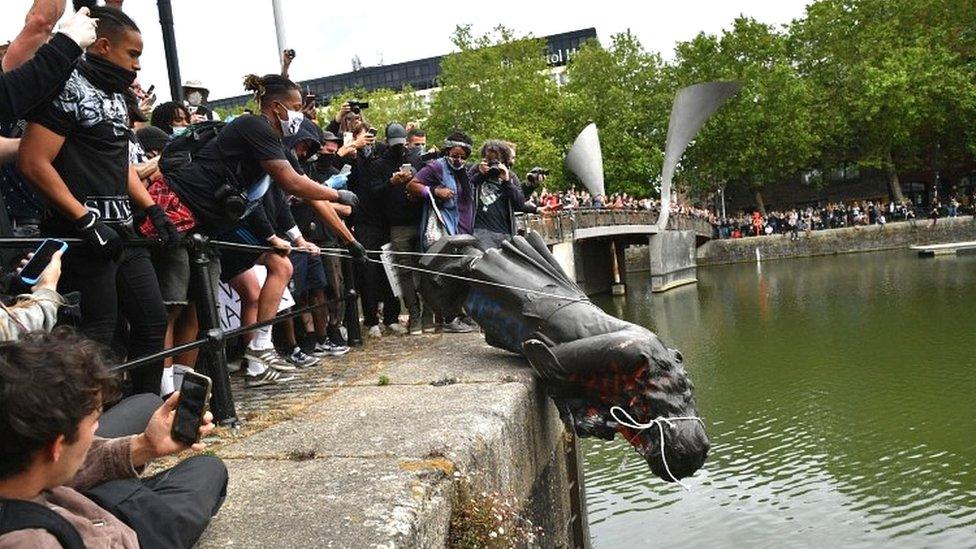Coronavirus: Police call for ban on protest during pandemic
- Published
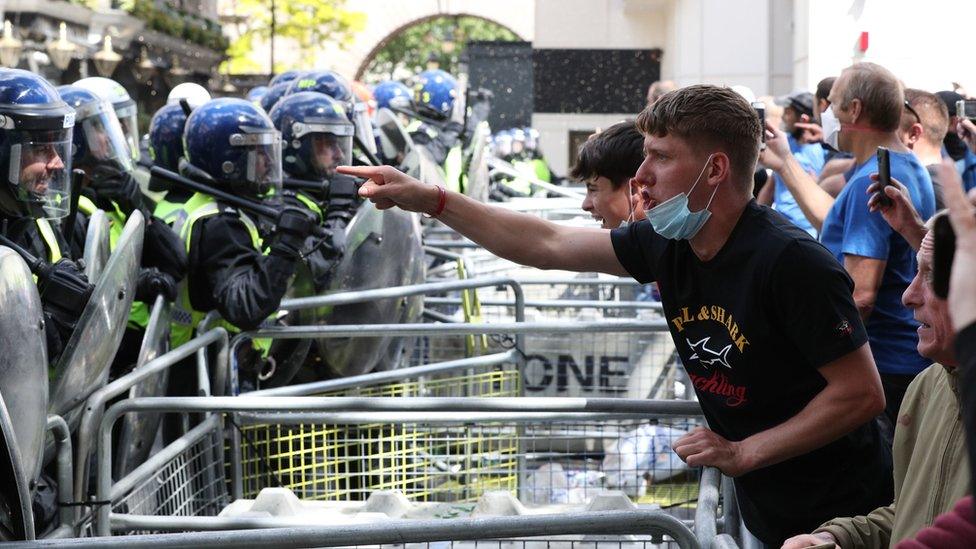
Prime Minister Boris Johnson condemned the "thuggery" of the weekend's protests
Rank-and-file police officers have called for the home secretary to ban all protests in England and Wales while coronavirus remains a threat.
John Apter, chairman of the Police Federation, said Priti Patel must be "unequivocal" while officers and the public face an "avoidable risk".
The right to protest is important but "we are not in normal times", he said.
More than 100 people were arrested after a second weekend of demonstrations.
Mr Apter, whose organisation represents police constables, sergeants and inspectors, said officers had shown "outstanding professionalism" over two weekends of protest - including the anti-racism demonstrations sparked by the death of George Floyd in the US and counter-protests involving far-right activists.
But he added: "We are not in normal times, we are tackling a deadly virus which is indiscriminate in who it can affect."
"I urge the home secretary to be unequivocal in her terms that whilst we are under the threat of this virus, any large gathering or protest must be banned."
Gatherings of more than six people are already banned under the coronavirus regulations. Police have tended to break up large groups, such as illegal parties, and order them to go home.
Officers can also hand out £100 fixed penalty notices to people who will not follow the regulations, or they can arrest and charge someone with an offence for breaching them.
Metropolitan Police Commissioner Cressida Dick said police were making "case-by-case" decisions about what to do in the case of demonstrations.
The government has been warning protesters that ignoring the guidance could lead to a fresh spike in cases of Covid-19.
And after the first weekend protests, Ms Patel had urged people not to attend future events, because of the pandemic.
'Mindless hooliganism'
On Saturday, 23 officers were injured in London after they were pelted with missiles, smoke grenades, glass bottles and flares by demonstrators, including far-right activists, who took to the streets in response to the previous weekend's anti-racist protests.
Prime Minister Boris Johnson condemned it as "racist thuggery" while police called it "mindless hooliganism".
Mr Johnson also condemned the tearing down of a statue of slave-trader Edward Colston on June 7 by anti-racist demonstrators.
That weekend of protests in solidarity with George Floyd, who died in Minneapolis after a police officer knelt on his neck for almost nine minutes, was largely peaceful but ended with missiles and fireworks thrown at a police line near Downing Street.
Mr Johnson has announced a commission to look at "all aspects of inequality" and end what he called the "sense of victimisation and discrimination".
Labour's shadow justice secretary David Lammy said people were protesting because "the time for review is over and the time for action is now".

DIET AND IMMUNITY: How important is diet for the immune system?
CORONAVIRUS QUIZ: Debunk the myths

- Published15 June 2020
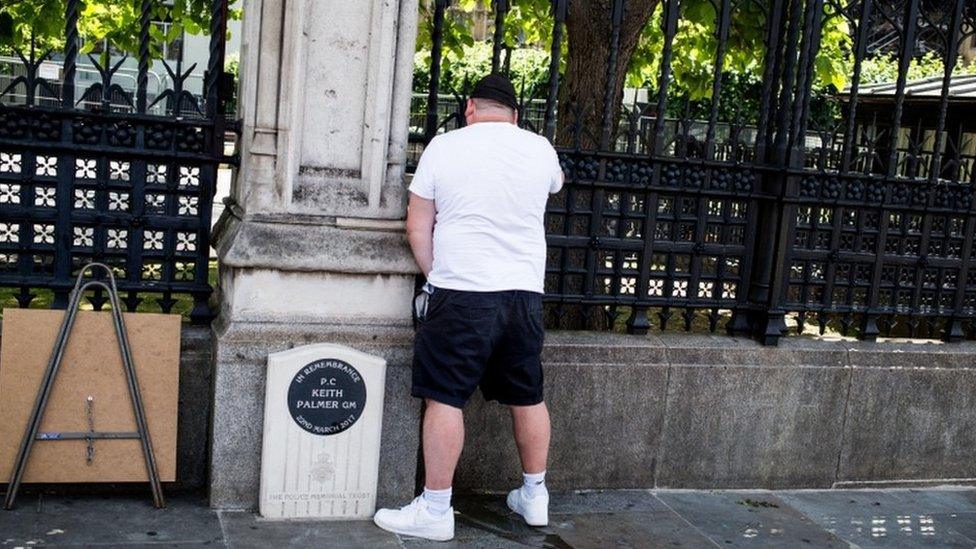
- Published14 June 2020
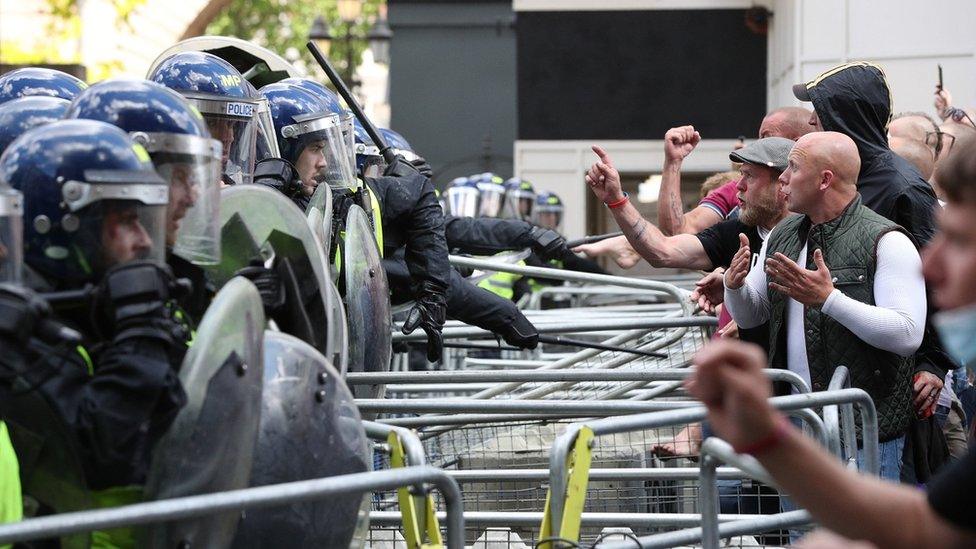
- Published15 June 2020
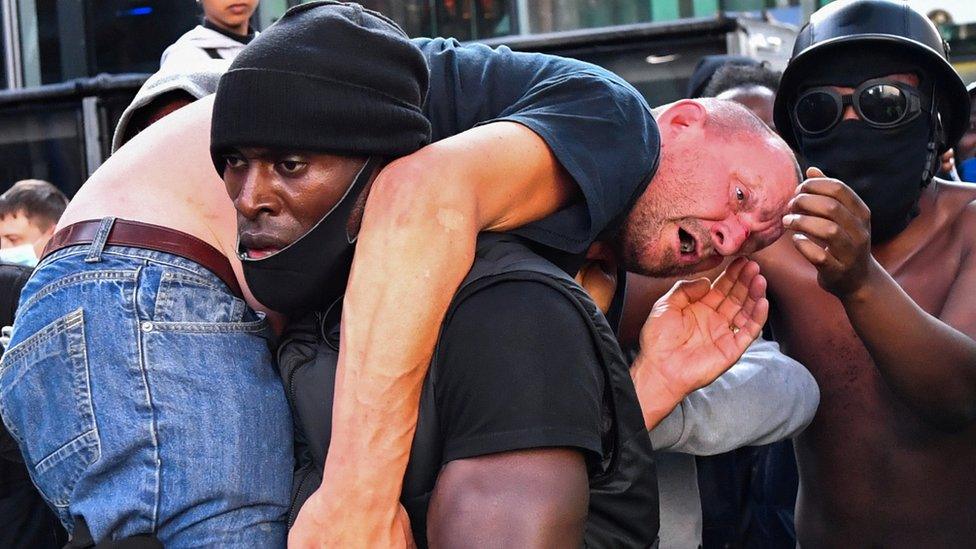
- Published8 June 2020
